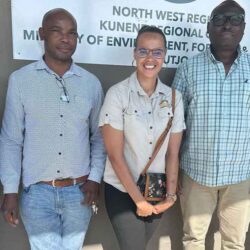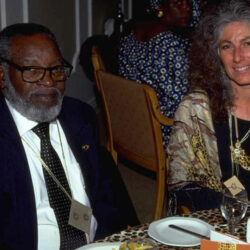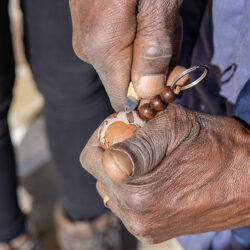Certification in Dog Training from ISCPB
-
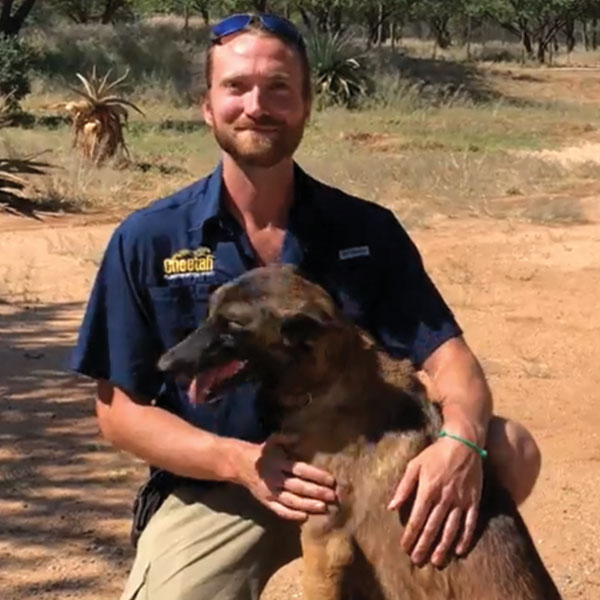
- by Tim Hofmann January 10, 2022
As CCF’s scat dog researcher, I am working with and training multiple dogs to accompany me in the field and help me find the scat of the elusive and wide-ranging cheetah. Therefore I am always looking for ways to improve my dog-handling skills and build a solid foundation on learning theories. I was very happy when CCF supported me to further my qualifications and gain a formal dog training certification. The diploma course offered by The International School for Canine Psychology & Behaviour teaches the basic principles of reward and science-based training strategies and provides a lot of information on dog behaviour, which is exactly what I was looking for. I enrolled for the course early this year and since then worked my way through several modules starting from the very basics of positive reinforcement up to more complex behaviour chains.
The course was purely online, which was necessary because of the long periods of field trips with the scat dogs year and the travel restrictions caused by the covid-19 pandemic. Many training videos made it still possible to see the discussed theory in action and in return, I was also asked to submit many videos interacting and working with the dogs, in addition to the written essays for every module. Of course, the training exercises were the most fun and CCF provides an excellent training environment with many dogs from various breeds and ages.

Among the highlights were some general reinforcement strategies with Optel, a little mixed breed who was incredibly joyful in every exercise, which makes training a very easy task.
Together with Katira, one of our young Livestock Guarding Dogs originating from a working mixed breed line, we were trying to implement some basic behaviours. Since she will be a breeding female as part of the mixed breed dog guarding program, having this extra training helps keep stress levels low if our vet team needs to perform any examinations. While she is specifically trained to be working with our dairy herd and protect them in the veld, it is very handy to have some basic commands like ‘sit and wait for your food’ to make handling such an energetic and happy dog a little easier on a daily basis.
Of course, I was also doing many exercises with my colleagues Enyakwa, Gamena and Ole. As Ole already had a great repertoire of exercises from our work before CCF, he made it very easy to adjust those for the tasks in the course. This made the ‘formal retrieve’ over two obstacles, where the dog has to fetch an item, bring it to the handler and only release it on cue, an easy challenge even though it is a chained behaviour with many components that are not easy for the dog.
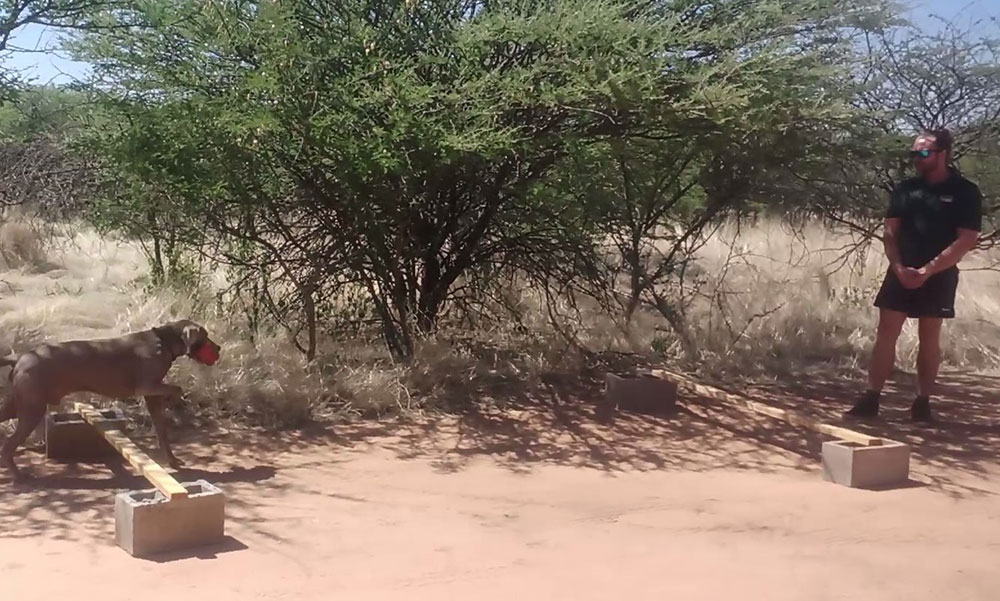
Enya and Gamena make teaching new tricks very easy and prove that Belgian Malinoises are known to be challenging to handle but easy to train. They are so eager to please with newly learned behaviours that even the advanced ‘tunnel racing game’ only took us a few days and some dozen repetitions (See photos below). Here the dog gets rewarded with a primary reinforcer (food/play) for running through a tunnel or in our case a cardboard box from a washing machine, we sometimes have to be creative and use what we have. After some time the behaviour itself is reinforcing even without the reward and therefore becomes a secondary reinforcer. This principle is probably best known from a clicker, where the sound has no meaning at the beginning but after being ‘charged’ with constant rewards acts as a reward itself because the dog learnt that a reward is on the way. Besides the course is a lot of fun it was also hard work and I am therefore very happy that I have now successfully completed all the modules and gained a certified dog trainer diploma and can use the title ISCP.Cert.Dog Trainer. I hope that the course prepared me even better to communicate with my dogs and improve our work.
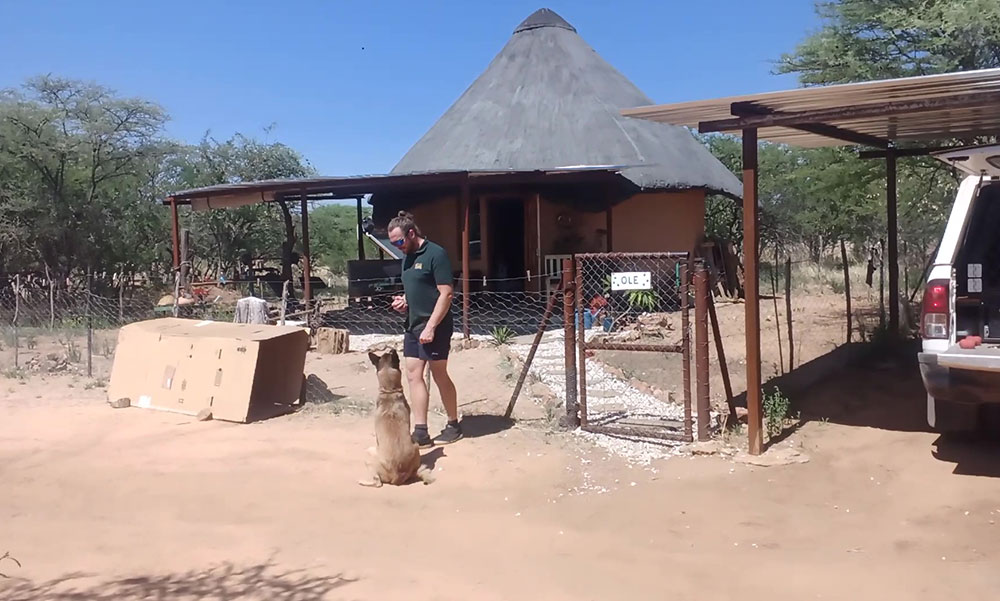

Training the tunnel racing game with CCF scat detection dog Enyakwa.
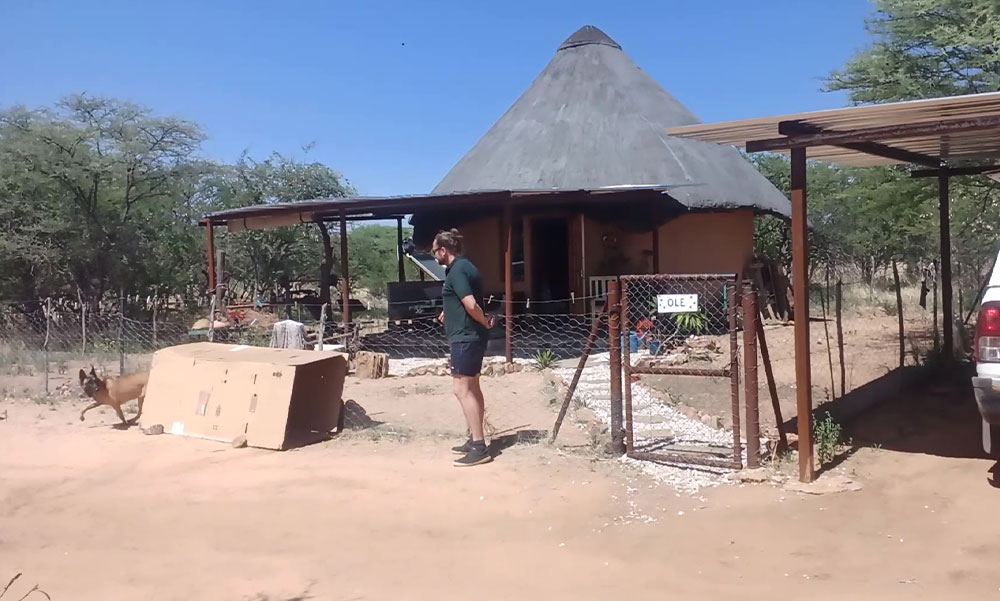

Related Reading
-
February 11, 2025
Eulogy for President Sam Nujoma

